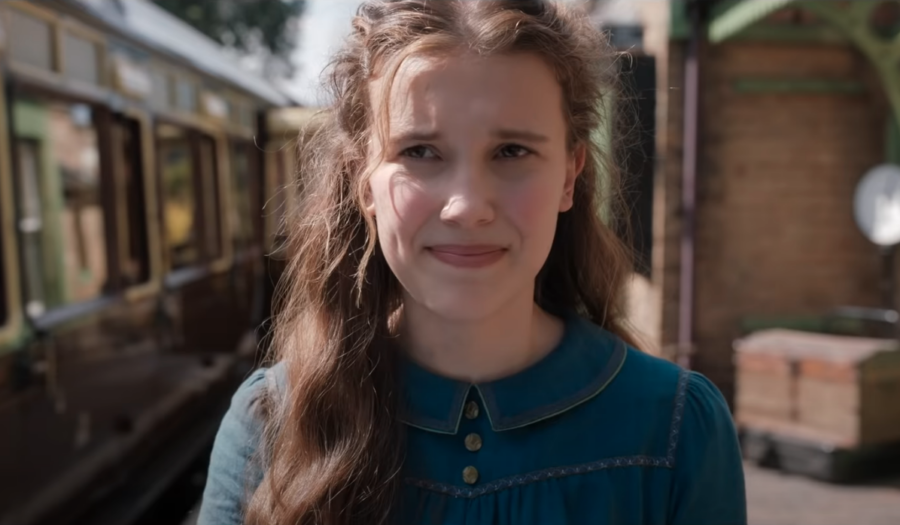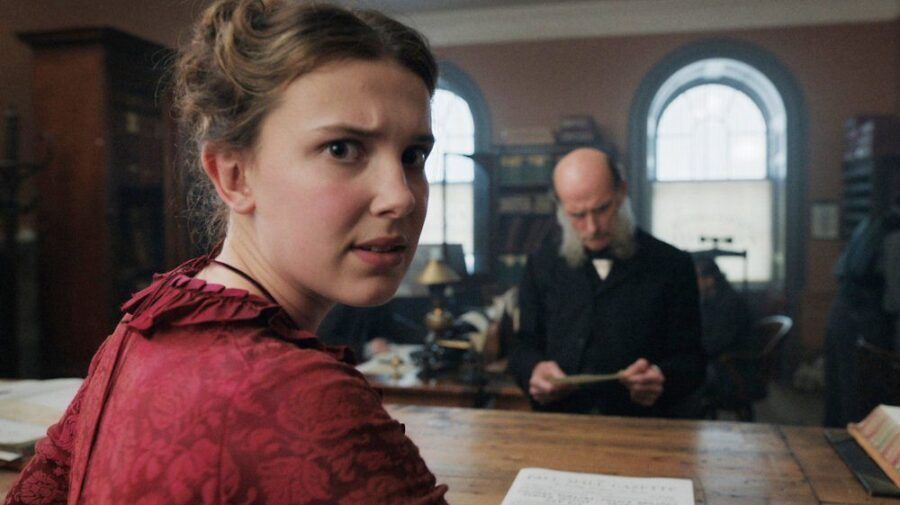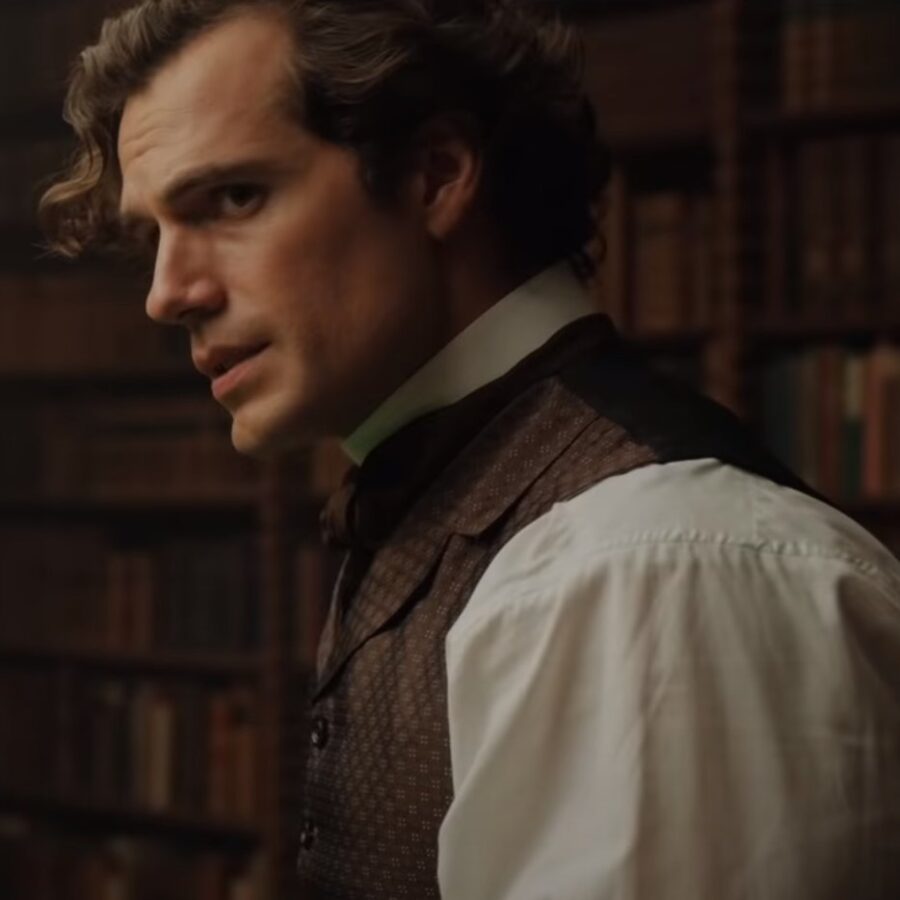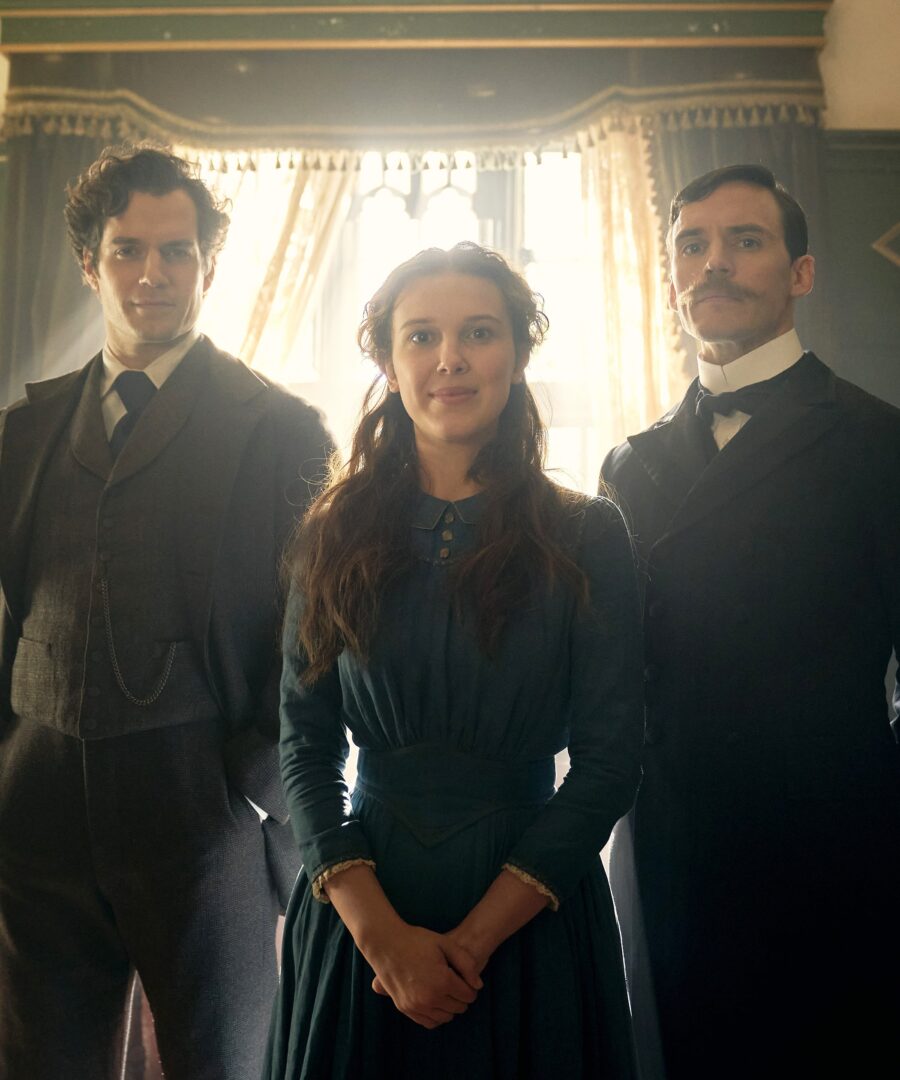Enola Holmes Review: Netflix’s New Movie Should Fight For Women’s Rights
Enola Holmes is less of a teenager’s perspective on a Sherlock Holmes story and more like Fleabag Jr.
This article is more than 2 years old

Since her last name is Holmes, it shouldn’t be a surprise that Enola is intelligent, eccentric, and constantly aware of her surroundings. She believes herself to be witty, with wide-eyed looks directly at the camera and a sly smile while she breaks the fourth wall and addresses the viewer she knows is there. At one point, Enola fresh out of ideas in a panicked moment, asks the audience if they have any suggestions. But even with her mystery to solve and surprisingly dark adventures, Enola Holmes is less of a teenager’s perspective on a Sherlock Holmes story and more like Fleabag Jr.
This makes sense given that Enola Holmes director Harry Bradbeer directed most of the Phoebe Waller-Bridge show, Fleabag. He even won an Emmy last year for Outstanding Directing in a Comedy Series. This structure worked in Fleabag because it was used as a coping mechanism for the lead character. Here, it’s a way to get the audience to engage with mysteries that aren’t that mysterious, to test out some directing flourishes that are more irritating than impressive, and to give Enola Holmes a Watson she can work out her problems with. Her Watson is an unresponsive audience.
In Enola Holmes, the eponymous lead character (played by Stranger Things star Millie Bobby Brown, in her first leading role) wakes up on her sixteenth birthday to discover that her mother, Eudoria (Helena Bonham Carter) has left her home alone with a handful of clues on how to find her. To aid in the hunt for Eudoria, Enola’s brothers return to their family home. The older brother Mycroft (Sam Claflin) wants to send Enola to finishing school, as Eudoria has homeschooled her daughter all these years. The younger brother Sherlock (Henry Cavill) starts his own search for their mother, a search in which he doesn’t want Enola involved.

It doesn’t take long before Enola has escaped the grasp of her brothers and headed to London to find her mother. In doing this, she meets another missing person Viscount Tewkesbury, Marques of Basilwether (Louis Partridge), who has run away from his family and seems to be hunted by a killer. Enola decides to help the helpless Lord Tewksbury, while also going on the lookout for her missing mother.
Enola’s quest to find her mother in Enola Holmes is little more than a combination of flashback clues and the occasional word jumble. Enola’s mother enjoyed riddles and wordplay so much that Enola’s name backward is “alone,” a fact which is repeated over and over. Meanwhile, the mystery of the Lord attempts to give her a more responsive Watson, but the dynamic never quite works as well as it should.
Instead, it’s the characters on the fringes of Enola’s story that speak of a world that could be better than what it currently is that make this film exciting. Early on, Enola Holmes hints that Eudoria is the leader of an underground group of women trying to fight for equality, and while little is done with that, the most intriguing parts of this film rise up from that idea.

For example, Enola meets Edith (Susie Wokoma), a tea shop owner/self-defense teacher who is fighting for a feminist future. She’s a fascinating character that only gets a few scenes, including one where she starts to turn Sherlock on to her way of thinking, but unfortunately, she’s relegated to the sidelines early on. There’s a world of dissent and change brewing underneath Enola Holmes, but the screenplay by Jack Thorne – writer of the stage play for Harry Potter and the Cursed Child and 2017’s Wonder – doesn’t know how to bring that to the forefront.
Enola Holmes does have solid supporting performances, even if whatever these characters are doing is often more interesting than the core story. Henry Cavill makes his a charming Sherlock and following his performance in The Nightingale, Claflin continues his stretch of being the more unlikeable character in whatever film he’s in. Also lovely is Fiona Shaw as Miss Harrison, the headmistress of the finishing school where Mycroft wants to ship off Enola. To be fair, Enola Holmes‘ lead Millie Bobby Brown is energetic and game for whatever this film throws at her, but unfortunately, that isn’t to her benefit.
When Enola Holmes drops the pretension of being cute with its winking acknowledgment of the audience, it finds its strength in moments of breaking down barriers and attempts to make a more inclusive world of equality. As an attempt to make a Holmes-level story for a younger generation, Enola Holmes doesn’t know how to effectively present a mystery on screen. As a story of feminism in a time where women had precious few rights, Enola Holmes is more successful. It’s just a shame the fight for those rights rarely becomes the movie’s focus.














